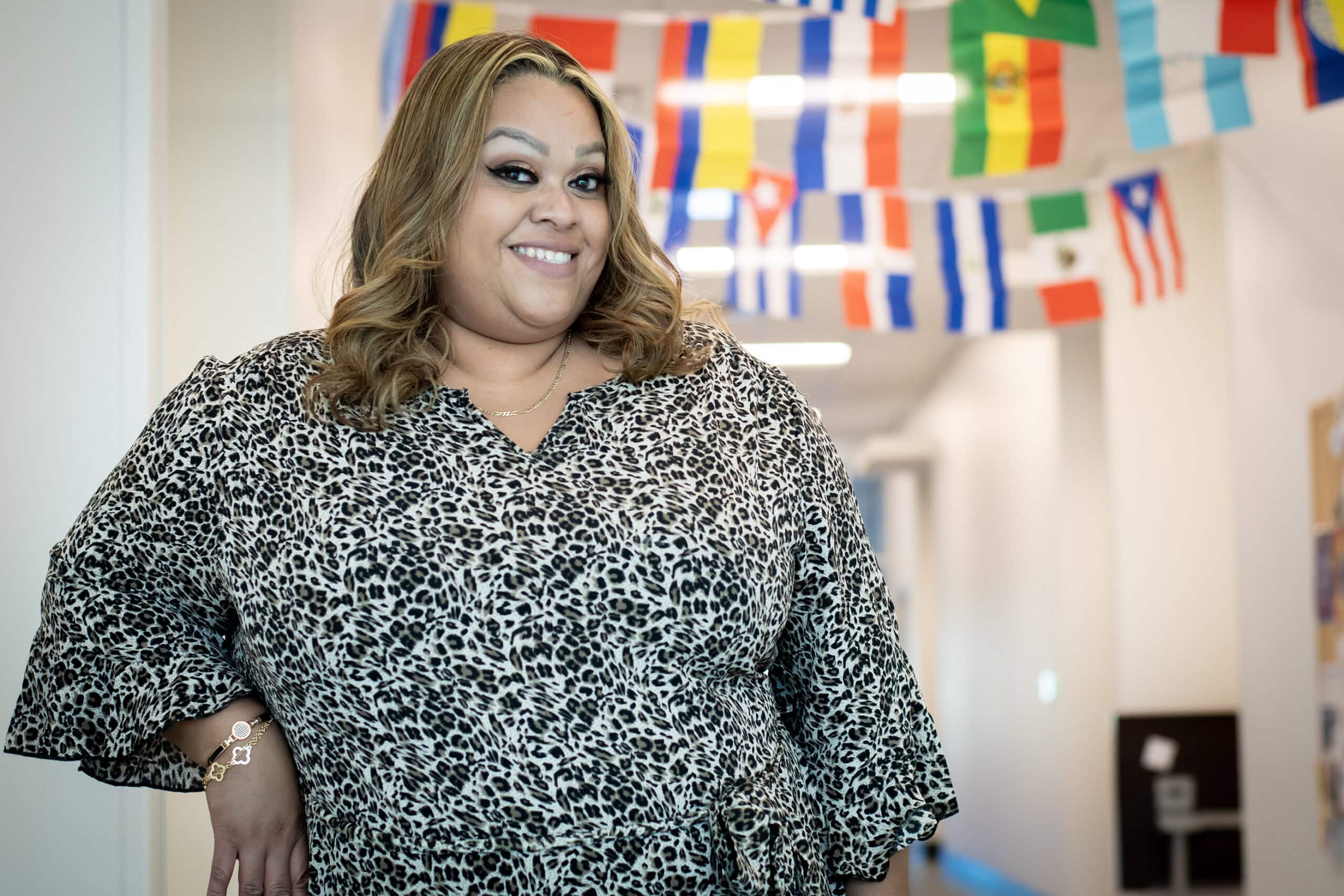UAMS Community Health Worker Named to National Advisory Committee
| Rosana Solis-Garcia, a certified community health worker (CHW) and mentor at the UAMS Institute for Community Health Innovation, was selected recently to serve on the National CHW Policy Working Group Advisory Committee.
Solis-Garcia began her work at UAMS in October 2020 in the institute’s contact tracing center, helping individuals and families in Northwest Arkansas navigate health care at the height of the COVID-19 pandemic. She now helps train future CHWs through the institute’s CHW training program as both a facilitator and mentor.
“CHWs are important because they’re trusted community members who help bridge gaps within their communities,” Solis-Garcia said. “They’re very relatable to community members, as we share things such as background, culture, language and lived experiences, making us such a strong asset to our communities. I’m excited to continue to serve our communities in Arkansas at the national level with the CHW Policy Working Group Advisory Committee.”
The National CHW Policy Working Group Advisory Committee meets regularly to discuss policies related to CHW work and to advocate for sustainability and representation of CHWs across the United States.
“I’m looking forward to being more involved when it comes to advocacy and policy changes for community health work,” Solis-Garcia said. “Together, we’ll make a difference not just for us, but for CHWs across the country.”
CHWs play a crucial role in providing support by connecting people to health services, offering education on disease management and advocating for the health needs of their communities. This role is especially important in rural areas of Arkansas, where CHWs help bridge the gap between complex health care systems and underserved communities.
The child of El Salvadorean immigrants, Solis-Garcia started helping her family and her community by translating and interpreting English-language documents and health services at a young age. From helping her mom understand health directives to helping other family friends navigate social systems, her ability to connect Spanish-speaking communities to essential services blossomed early.
“My mom would have me read and translate her documents for her, and I was always making her appointments, even when it came to immigration issues, like reapplying for her to have residence here,” she said. “In that way, I’ve always been a CHW.”
Since the institute’s establishment of its CHW training program in 2022, it has trained more than 140 CHWs who now serve 36 of the state’s 75 counties. In 2023, the institute began partnering with the University of Arkansas Hope-Texarkana to offer college credit for its training program.
To learn more about the institute’s CHW training program, click here.
